Last Updated on January 31, 2025
Looking for natural relief for sniffles, congestion, or a sore throat? These herbs for colds and flu may alleviate symptoms and help you recover more quickly. In addition to soothing cold symptoms, many herbs for colds taste delicious and are also excellent sources of antioxidants.
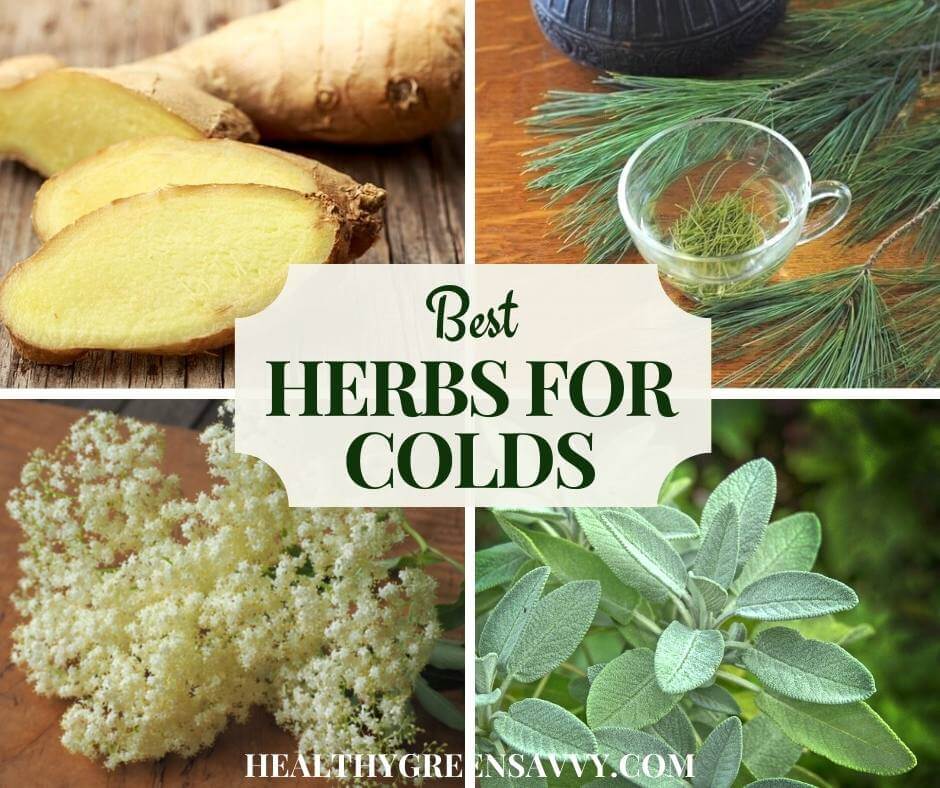
BEST HERBS FOR COLDS AND FLU TO TRY THIS SEASON
No matter how careful we are to wash our hands and get enough vitamin D and other nutrients that support our immune systems, inevitably we’ll come down with a cold sometime during the winter.
In addition to getting enough rest and fluids, some herbs can help us feel better and speed recovery. Warming ginger tea or soothing honey-based syrups can help us feel less awful while our immune systems fight invading viruses.
If you think you might be about to come down with something, you can try these simple kitchen remedies to fight a cold.
But if you’ve already lost the battle and are sniffling and sneezing, below are some of the best herbs for colds you can try to help you feel better till you’ve recovered.
HOW TO USE HERBS FOR COLDS AND FLU
Herbs work differently than pharmaceuticals that target cold symptoms. Rather than simply masking symptoms, herbs help address what’s causing them. Importantly, herbs don’t block the processes our body is trying to use to help us get well the way OTC medications often do.
Some herbs can help clear congestion, others can help fevers, while others can promote the rest you need to recover.
These herbs are meant to help you feel better when you already have a cold. If you’re looking to keep from getting a cold in the first place, be sure to check out these herbs that boost the immune system. Some are helpful for defending you from viruses, while others can be taken at the beginning of a cold to help your immune system fight back against viruses.
Herbs with antiviral activity, like elderberry, echinacea, ginger, and garlic, are helpful when you first feel cold symptoms coming on to help lessen the duration and severity of your cold. They can also be useful for alleviating coughs, congestion, and fever.
When I’m looking for information on using herbs to support health, I typically reach for my favorite herbal medicine books. Rosalee de la Forêt’s Alchemy of Herbs is a fantastic resource, as is James Duke’s info-packed Green Pharmacy, which consolidates decades of his research on medicinal plants from around the world.
I’ve linked to these titles on Amazon, but if you’d prefer to support independent bookshops, you can get them on Bookshop.org, which stocks these and many other excellent herbal books.
HOW TO CHOOSE WHICH HERBS FOR COLDS TO USE
Some of the herbs you choose will depend on the cold symptoms you want to treat. But there are other issues to consider as well:
Conditions and medications: A number of herbs are contraindicated for certain health conditions and prescription medications. Be sure to check with your physician before using herbs that may interact negatively with medications or be contraindicated for medical conditions such as autoimmune diseases. diabetes, high blood pressure, and so on.
Flavor: Which herbs will you enjoy enough to take? Though licorice is one of the top herbs for colds, not everyone likes its flavor. Elderberry tea, on the other hand, is so yummy, you’ll likely want some even when you’re not ill.
Ease of use: If you don’t think you’ll manage to simmer your own homemade elderberry syrup or brew your own cough syrup, you may want to choose herbs that are ready to use when you need them, such as tea bags or purchased syrups and tinctures.
Cost: Some of these herbs for colds are super-cheap, others not so much. Some you can easily forage for free, along with many more wild herbs you can probably find growing near you. More on where to buy them in the next section.
If you want to keep things simple, you might just want to have a few ready-to-go herbal remedies in your cabinet when you need them. Below are some to consider.
Traditional Medicinals and Yogi Teas: These targeted teas take aim at different elements of colds, from congestion to fevers. We go through a lot of Herbal Cold Care tea when someone gets the sniffles.
Ricola cough drops contain numerous herbs for colds and can be a helpful way to have them on hand when you need them. And if you’re not up for making your own elderberry syrup, a bottle of pre-made is helpful to have on hand.
WHERE TO GET HERBS FOR COLDS
The good news about these herbs for colds is that you likely have some already in your kitchen, and others you can easily forage in your neighborhood, even in your own yard.
If some of the herbs for colds appeal and you don’t already have them, you might be able to buy them in the small amounts you need at your local natural foods store. You can also buy them in bulk online, where you can find many herbs at reasonable prices.
For herbs I use all the time in homemade herbal tea blends, like lemon balm, chamomile, and catnip, I get one-pound bags that last a long time. But for treating a cold, I may get just an ounce of marshmallow root at my local co-op.
Some of the best places I’ve found to get herbs online:
- Mountain Rose Herbs: Very high quality, organic herbs at reasonable prices
- Vitacost: Though they don’t have all the bulk herbs I like to get, they do carry many, and they’re a great deal when they’re on sale (which is often). They’re also an excellent source for medicinal teas and syrups.
- Starwest: A huge line of bulk herbs at competitive prices
- Amazon: Amazon carries many bulk herbs from Starwest and Frontier as well as numerous ready-made herbal cold remedies
- Etsy: You can find tons of herbs available in different quantities from small growers

HERBS FOR COLDS AND FLU THAT ALLEVIATE CONGESTION
When we get cold viruses, our bodies respond by dilating blood vessels to carry white blood cells that can combat the invaders. The battle going on in our nasal tissues causes them to become inflamed and we feel congested.
To help bring down swollen tissues, you can try some of the herbs for colds listed below, many of which you probably already have in your kitchen.
GINGER
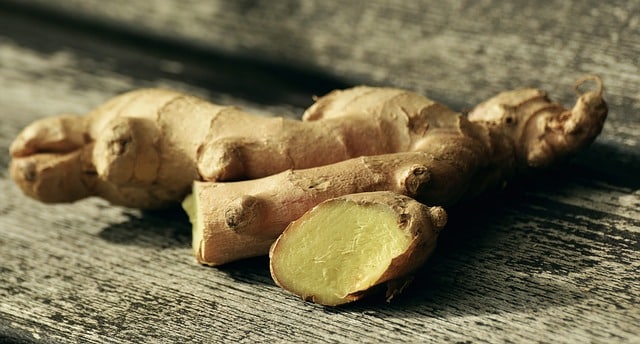
In addition to its antiviral activity, ginger is an excellent anti-inflammatory and can help alleviate congestion. One of herbalists’ favorite herbs for colds and flu, ginger has been praised by renowned herbalist Rosemary Gladstar as one of “our kitchen medicine miracles.” I make sure we always have ginger on hand to fight off cold viruses and reduce congestion.
You can add ginger to warming broths on its own or with other herbs for colds. You can also make a simple tea with fresh ginger. This ginger tea recipe also includes orange peel for cough relief and additional anti-inflammatory compounds. Here’s an easy orange peel tea to make on its own or combined with other herbs.
You might want to try making an easy ginger tincture so you always have ginger’s useful benefits on hand whenever you need them.
This cold and flu elixir from the Herbal Academy combines ginger, orange peel, elderflower, elderberry, calendula, and rosehips.
PEPPERMINT
Peppermint contains menthol, which helps reduce inflammation and can alleviate congestion. A steaming cup of peppermint tea will soothe your throat and improve digestive complaints, while breathing in some of the vapor can help reduce swelling in the nasal passages. You can also make a congestion-busting herbal steam using hot water and peppermint leaves by tenting a towel over your head and breathing in the peppermint-infused steam. (Just take care the water isn’t too hot so you don’t burn your skin.)
BLACK PEPPER
Another great herb for cough found in virtually every kitchen, black pepper is a traditional remedy for congestion. It’s an expectorant that also has antimicrobial and anti-inflammatory properties. Use it in soup with ginger and garlic, or try it on its own with honey as a spicy tea.
GARLIC

In addition to working as an antiviral, garlic is an expectorant, helpful for clearing up congestion. Though some studies on garlic use dried herbal supplements, herbalists generally recommend raw garlic for addressing cold and flu symptoms. Crushing garlic cloves and allowing them to sit for 15 minutes before consuming increases the concentration of allicin, a key compound involved in garlic’s benefits for health.
Here’s more on the benefits of garlic. A popular home remedy called fire cider contains garlic, black pepper, ginger, and other ingredients helpful for addressing colds and flu. Find out how to make it here.
GOLDENROD
An anti-inflammatory herb, goldenrod helps soothe inflammation and clear up mucus. Goldenrod is easily foraged, so stocking your herbal apothecary with this useful herb for colds can be done for free. Here’s more on other goldenrod benefits (and how to tell goldenrod vs. ragweed). Here’s a simple recipe for goldenrod tea.

Other herbs for colds with congestion you might find in your kitchen cabinet:
- Basil
- Oregano
- Marjoram
- Rosemary
HERBS FOR COLDS AND FLU THAT HELP COUGHS
Numerous herbs can help with coughs, though as you surely know from experience, there are different types of coughs. Some are dry, while others are very phlegmy. Find out more about the types of cough in this post covering easy home remedies for cough.
For dry coughs, you’ll want to turn to moistening herbs (called demulcents), which soothe irritated tissues and lessen the urge to cough. Some of the top herbal demulcents are slippery elm, marshmallow root, licorice root, violet, and plantain.
Antispasmodics like cramp bark and valerian can help control coughs as well. I recently had a cough that wasn’t letting me sleep. A few drops of cramp bark tincture in my throat knocked it out completely and let me get some rest.
For coughs caused by congestion, you’ll want expectorant herbs that help get rid of congestion like wild cherry bark and mullein. Below are a selection of herbs for colds that can help coughs. For more detailed information and additional options, check out this post on the best herbs for cough.
ANTI-TUSSIVES & HERBS FOR WET COUGHS
The herbs below are helpful for clearing congestion that causes cough and for reducing the spasms that make us cough.
Wild Cherry Bark
Wild cherry bark is an antispasmodic and expectorant with astringent properties. A popular remedy for coughs, cherry bark can be taken in a tincture, decoction, or syrup. It’s often used in herbal cough syrups.
Pine

A traditional remedy for coughs and colds, pine needles are a useful decongestant and expectorant, and best of all are available on trees near you all year round. Pine needles can be made into a tasty pine needle tea or pine syrup, which can be used as a cough medicine.
Mullein
Anti-inflammatory, anti-spasmodic and expectorant, mullein can help both dry and wet coughs. You can use mullein tincture on its own or in tea blends for cough relief. Dried mullein may also be used for tea. Make sure to use a teabag or strain through a coffee filter so you don’t consume mullein’s irritating hairs.
Thyme
An expectorant and anti-spasmodic, thyme can help calm coughs. You can make thyme tea or enjoy it infused in a soothing broth.
If you grow your own thyme, drying some for winter is a smart move to have it on hand for cold season. Find out what you need to know about how to dry thyme. If you don’t have any on hand, I recommend buying it in the bulk spice section of a natural foods store. Or you can find a bottle of organic thyme inexpensively at Vitacost, my favorite place to stock up on healthy pantry staples.
Creeping Charlie

An expectorant, anti-inflammatory, and longstanding remedy for coughs, the unjustly maligned creeping Charlie (called ground ivy by the more enlightened) is an excellent herb for cold and flu. Plus much of the year, it’s free for the picking just about everywhere you look. When I can’t shake that crummy feeling that often accompanies colds, a cup of creeping Charlie tea is often one of the few things that makes me feel better.
Intrigued? Here’s more about the many uses for creeping Charlie plus some creeping Charlie look alikes to know.
Hyssop
Hyssop is a traditional herb used for colds and coughs. Expectorant, anti-spasmodic, and antiviral, hyssop can be taken in tea or syrups to calm a cough and inhibit viruses. Here’s more about hyssop benefits from Maud Grieve’s A Modern Herbal.
Other herbs to soothe coughs and colds to consider:
- Bee balm
- Cramp Bark
- California Poppy
- Nettle
- Valerian
- Linden
HERBS TO SOOTHE A DRY COUGH
Marshmallow Root
Often used to soothe dry coughs and sore throats, it’s also anti-inflammatory. It’s typically prepared as a cold infusion.
Slippery Elm
This slippery herb is an excellent choice for coating an irritated throat. Vitacost carries lozenges, syrups, and teas that could be useful for soothing a dry cough.
Violet
Plentiful wild violets can be harvested and dried in summer for use with winter colds. An expectorant and antiinflammatory, violets can be used to make soothing violet tea or homemade cough syrup.
Plantain
A common “weed” with fantastic medicinal properties, plantain’s leaves are demulcent and can help a dry cough. Here’s more on using plantain
HERBS COLDS AND FLU FOR FEVER
ELDERFLOWER
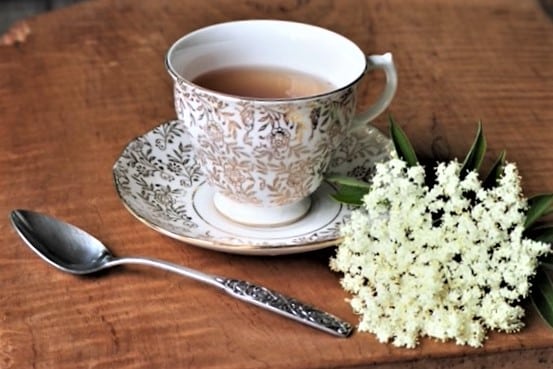
One of herbalists’ go-to herbs for fevers is elderflower, which helps to promote what herbalists refer to as a healthy fever process (explain). Here’s more about elderflower benefits and here’s an easy recipe for elderflower tea.
Frequently combined with yarrow (more on that below), you’ll find them with other useful herbs for colds and flu in Traditional Medicinals Herbal Cold Care tea, which you’ll see on the shelves of many supermarkets and drugstores. It’s also available online.
You can also forage your own yarrow and elderflower or buy them at Amazon, Vitacost
Starwest, or Etsy.
YARROW
Yarrow is a wonderful herb to have on hand for fevers. It can be used in tea or added to bath water to support the fever process and speed recovery. In tea and tincture, it helps reduce swelling and dries up mucus.
Here’s more on yarrow uses and benefits.
CATNIP
A top herb for promoting sleep, catnip also helps with fevers and respiratory problems. It has a pleasant minty flavor and works well in tea. Here’s more on the benefits of catnip as well as how to tell it from catmint, since people often conflate the two herbs.
CHAMOMILE

This much-loved herbal tea is not only helpful for soothing stress, but as an anti-inflammatory and antispasmodic, chamomile can help relieve congestion and cough and fever while promoting restful sleep. Enjoy it as a string tea and inhale the steam (or use in an herbal steam) to help reduce inflammation in the nasal passages.
Here are more top herbs for sleep to try to help you get rest when you’re dealing with cold and flu symptoms.
HERBS FOR COLDS WITH SORE THROAT
Many of the demulcent herbs that soothe coughs also help sore throats. Slippery elm, marshmallow root, and plantain can all help coat irritated throat tissue. Traditional Medicinals makes a bagged tea called Throat Coat contains slippery elm, as well as licorice, marshmallow, cherry bark, and other beneficial herbs for colds and flu.
LICORICE ROOT
A top antiviral herb, licorice coats irritated tissues and can help sore throats feel better. Because of its strong flavor, it works best in small amounts with other herbs.
Licorice raises blood pressure and shouldn’t be used long-term.
CINNAMON
Cinnamon is a warming herb often recommended for fevers and sore throats. You can add it to your food or tea or make the common home remedy cinnamon honey, which you can eat on its own or add to tea
SAGE
Fragrant sage isn’t just for soup and holiday meals. It’s an excellent sore throat remedy to keep around for making sage tea. A lovely herb for your medicinal herb garden, it’s easy to grow and dry for winter use.
I’ve focused on some of the more widely-available herbs for colds and flu, but there are loads more to explore, including spilanthes, a helpful antiviral with numbing properties.. This detailed article covers numerous less common herbs if you’d like to know more.
What herbs for colds and flu have worked best for you?
Save these herbs for colds and flu for later!

Disclaimer: I’m a health enthusiast, not a medical professional. Content on this website is intended for informational purposes only and is not meant to provide personalized medical advice. I draw on numerous health sources, some of which are linked above. Please consult them for more information and a licensed professional for personalized recommendations.
Additional photo credits for cover collage and pin: gate74, Susannah Shmurak, Susannah Shmurak, Wolfgang Eckert, Lawn Health, gate74, eyewave
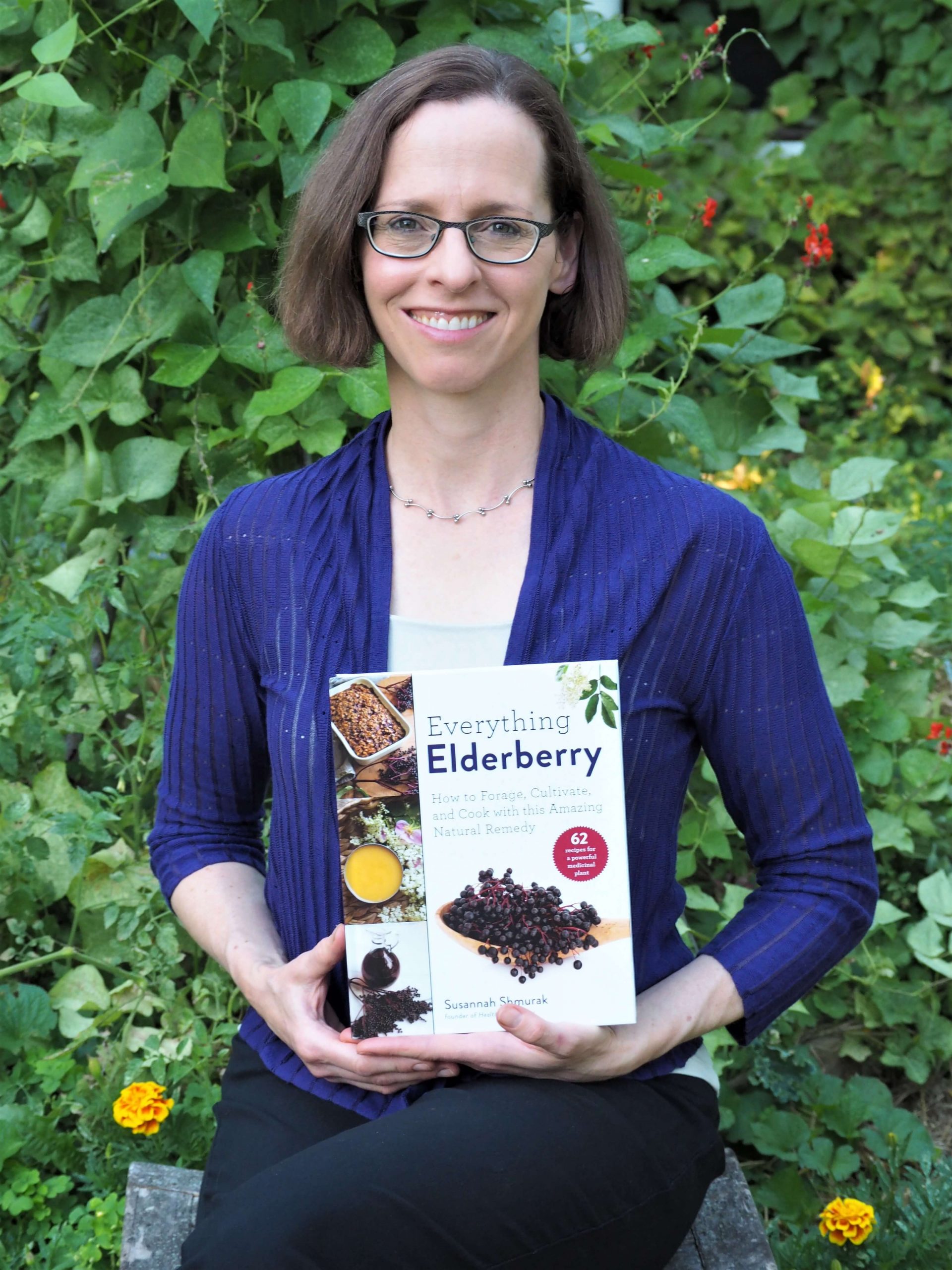
Susannah is a proud garden geek and energy nerd who loves healthy food and natural remedies. Her work has appeared in Mother Earth Living, Ensia, Northern Gardener, Sierra, and on numerous websites. Her first book, Everything Elderberry, released in September 2020 and has been a #1 new release in holistic medicine, naturopathy, herb gardening, and other categories. Find out more and grab your copy here.
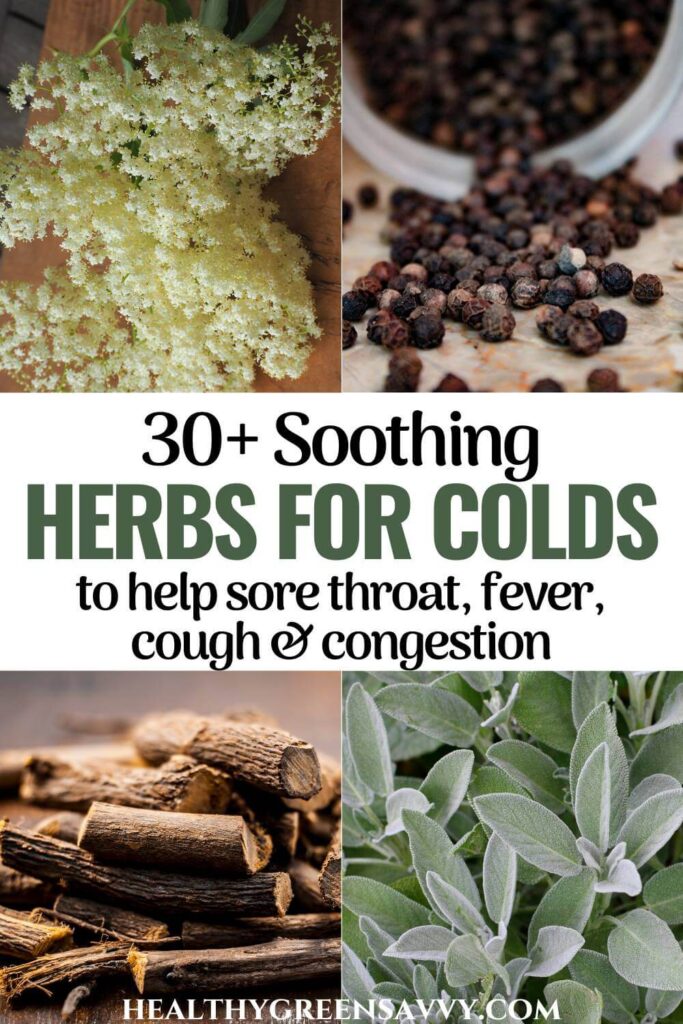
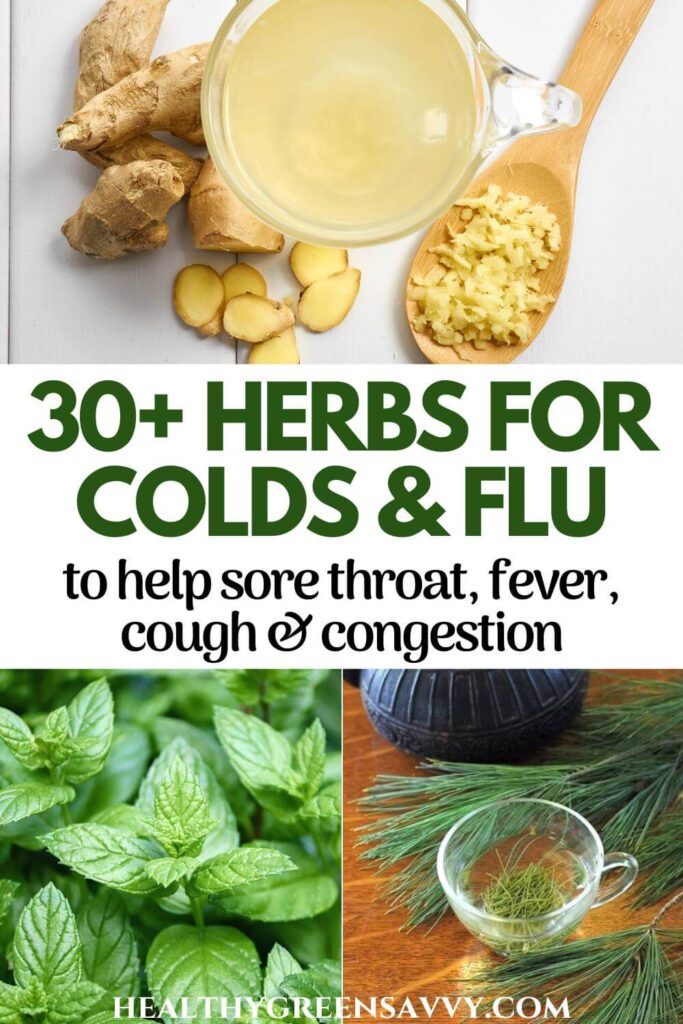
 Hi, I'm Susannah, a garden geek, energy nerd, and fan of healthy food and natural remedies. Need some simple, practical solutions for living healthier and greener? You've come to the right place! More about me and my green projects
Hi, I'm Susannah, a garden geek, energy nerd, and fan of healthy food and natural remedies. Need some simple, practical solutions for living healthier and greener? You've come to the right place! More about me and my green projects
Leave a Reply